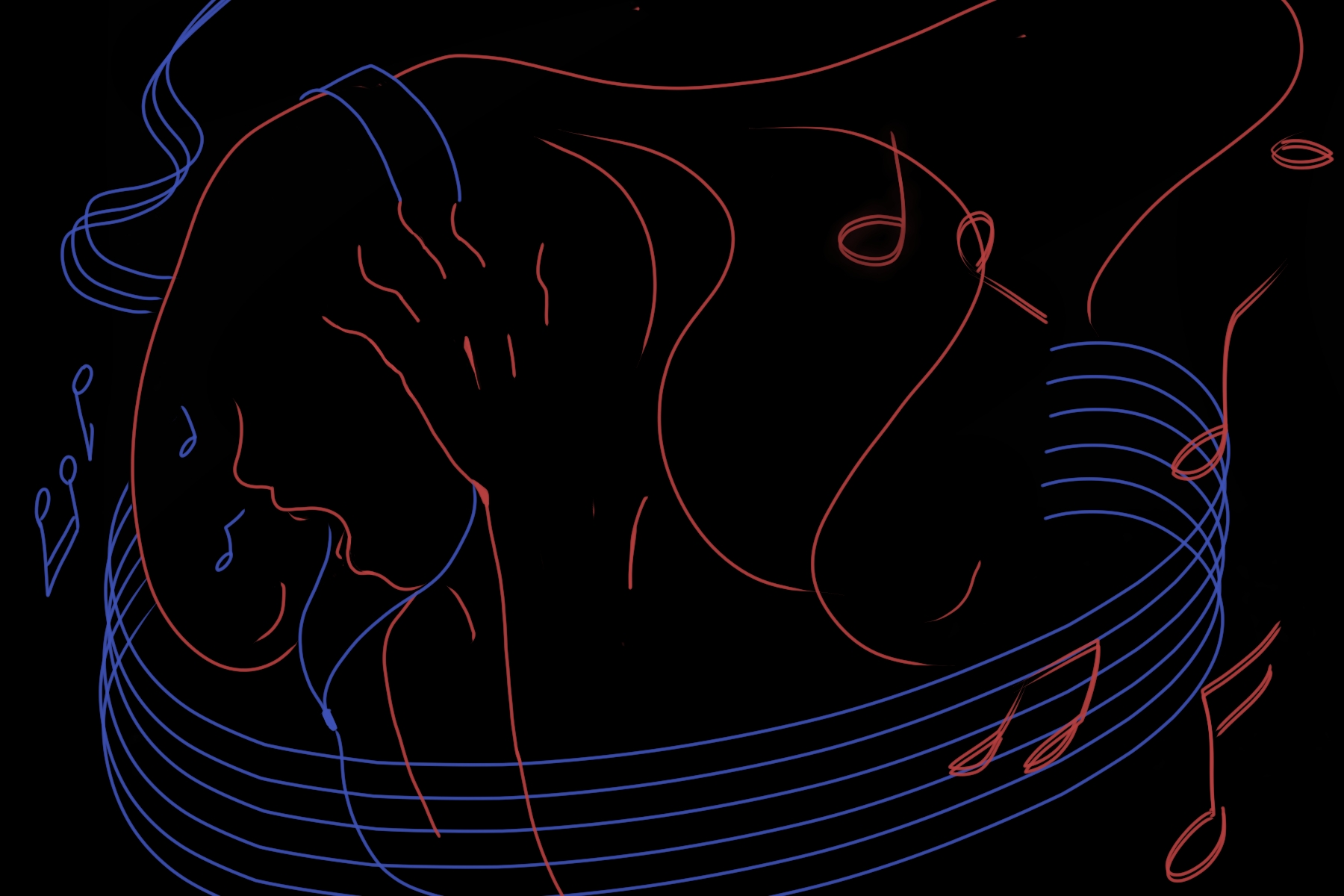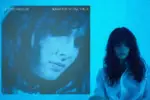Last week I wrote an article discussing punk rock and its impact on mental health, but what about pop music? Even 10 years ago, mental health was a new subject to discuss in music. Modern pop music songs are named after suicide hotlines and discuss finding yourself, as well as self-love. While these songs have encouraged mental health representation, they have also normalized feeling depressed, being unhappy and expecting the worst out of every situation.
This is not to say serious music cannot be great and helpful. I applaud bands like My Chemical Romance and rapper NF who open these discussions. Sadness has its place in music. However, I fear modern music and entertainment is guilty of fetishizing depression. Changing how we discuss mental health, personifying mental illness in characters and sad songs topping music charts have all changed the relationship between mental health and media.
The 2010s are commonly cited as the decade which changed how the media handles mental health. The suicide of Robin Williams struck people of all ages and was a cause for mourning across the country. Suicide has been treated as a dirty word — an ending only horribly sad people would ever participate in. But Williams was kind, funny, famous and his death caused many people to reanalyze how we discuss mental health.
Gregory Dalack, chair of the Michigan Medicine Department of Psychiatry and treasurer of the American Psychiatric Association said celebrity deaths “triggered greater awareness about the stigma around mental health and the importance of seeking help.”
TV shows like “This Is Us” and “13 Reasons Why” also added to mental health discussions. Indirectly, movements like #MeToo also encouraged celebrities and the public to speak about mental health. As the change grew more and more, many notable figures came forward with stories of their own struggles.
So, what’s the problem? Aren’t singers supposed to sing about their experiences? Aren’t shows supposed to tell new and interesting stories? Interesting is the key word here. Shows like “American Horror Story” portray mental illness as desirable, even helpful, in some cases. The protagonist, Violet, dies by suicide in the first season before she is “saved” by the dreamy, highly unstable, Tate.
Instead of growing from these emotions, the characters are assigned mental illnesses which are written off as a personality trait. These characters are not respected for their courage, but instead they are glamorized for being depressed, anxious or otherwise. Romanticizing mental illnesses has also bled into pop music.
Songs like “Broken” by lovelytheband look for depression in a relationship. In this song, expecting happiness isn’t just naive, it’s unrealistic. The song is set in an expensive party of trust fund kids wishing their lives away. This song is reminiscent of attitudes stereotypical of the teenaged population in films like “Less Than Zero” because it tries to make depression an aesthetic. “I like that you’re broken, broken like me,” the song says.
The song isn’t protesting these emotions or asking for better treatment, in fact it is asking for the opposite. The singer is seeking out someone who is “broken” and later says everyone is already broken and because of this, his pessimism isn’t concerning, but smart. The song continues its message: depression is romantic. “I like that you’re lonely. Lonely like me. I could be lonely with you.”
Studies have shown pop music is becoming sadder in a study from the University of California. This study analyzed 500,000 songs released from 1985-2015. Researchers studied the influences of these songs and their musical characteristics in order to determine the correlation in the popularity between varying songs. The study also found “a clear downward trend in ‘happiness’ and ‘brightness’ as well as a slight upward trend in ‘sadness.”
The researchers found that the use of positivity has declined over the years while indicators of loneliness and even social isolation have increased throughout the years. Lior Shamir at Lawrence Technical University studied lyrics and emotions in pop music. “You see a very consistent, very clear change that lyrics become angrier, more fearful, more sad and less joyful,” Shamir said. “There are very substantial differences between lyrics in the late ‘50s compared with lyrics in 2015 and 2016.”
These messages are confirmed in one of the most popular songs of 2015, “Stressed Out” by Twenty One Pilots. “Wish we could turn back time to the good old days. When our mama sang us to sleep but now we’re stressed out.” The song discusses the group’s insecurities and their anxiety over making a living while being true to themselves.
Songs like “finding it hard to smile,” by lovelytheband, “ghostin” by Ariana Grande, “1-800-273-8255” by Logic or almost anything by Billie Eilish adds to this study. According to “broken” by lovelytheband, “Life is not a love song that we like. We’re all broken pieces floating by.” Is this what love has become in modern media — falling for a school shooter and seeking out unhealthy people?
The reason I find this trend concerning is its normalization of being sad or expecting to be sad. “I’ve got issues you’ve got them too so give them all to me and I’ll give mine to you,” sings Julia Michaels in her hit song “Issues.” There isn’t a rousing chorus or a finalizing message to comfort fans. Sad music is fine, but a rising expectance of depression and anxiety have changed pop music and TV.
Mental health is a rising concern in media, but it is still one of the leading causes of death for teenagers. It seems to also be a rising concern in singers. Take Eilish’s “Everything I Wanted” or “Listen Before I Go” which discusses her plans to end her life. “Sorry can’t save me now. Sorry I don’t know how,” she sings. “Call my friends and tell them that I love them and I’ll miss them but I’m not sorry.”
The idea of “only having tonight” and being sad can be found on any pop station. But for some people this music carries the same message of The Smiths, Nirvana, Coldplay, Sia or Demi Lovato. It is not a takeover but a common trend returning to listeners speakers. Some listeners, like Claire Biddles, even find this music “self-indulgent.”
“It’s a kind of sadness you can handle and that actually lifts you up in some way,” she says. “There’s also a cathartic thrill in listening back to a song that you relied on during a break-up or whatever, and realizing how far you have come, but also connecting with the part of yourself that went through that pain or heartache.”
After all, with every “broken” song there is Selena Gomez’s “Lose You to Love Me,” Justin Bieber’s “Life Is Worth Living” and Lovato’s “I Love Me.” Discussing mental health doesn’t mean only discussing anxiety or not wanting to live, sometimes it means finding a reason to live
“Time” by NF is an example of a pop song which discusses mental health and day-to-day struggles while reassuring listeners everything will be alright. It must also be taken into consideration that the age of a social media society has an even greater desire to know everything about a celebrity’s life, from their morning routines to their perception of themselves and their lives.
Perhaps this is simply celebrities responding to that desire. There are also social implications of these changes. Rising cultures of “sad girls” can be seen on Tumblr and in most Lana Del Ray songs, which shows that this shift in culture is also affecting young people. Is the rise in sad music a cause for questions, or is it another impact of social media and discussing mental health in media?
“I don’t wanna be alive. I just wanna die today,” Logic sang at the 2017 MTV Video Music Awards. Behind him written in white letters was “1-800-273-8255” — the name of his song and the name of a suicide prevention hotline. Logic shared the dance stage with suicide survivors as he responded to his own song with a message of hope. The second verse is to comfort the other person in his song, “You don’t gotta die, I want you to be alive.”
Sometimes music must be sad, even painful, to say what the song truly means. “I don’t wanna cry anymore,” Logic sang. “I wanna feel alive. I don’t even wanna die anymore.” Mental health discussions are not always perfect, but an important step in these discussions is acknowledging they are real. As the introducer and singer, Kesha, said, “The truth is piercing and the truth is what matters. The truth is none of us are alone.”
While I don’t think it is helpful to romanticize depression, I believe these discussions are integral to the success of our society. Sometimes that means discussing vulnerable subjects. After all, what is music without emotion? What do you think? Has pop music become too harmful and pessimistic, or is it helping listeners express themselves?
















